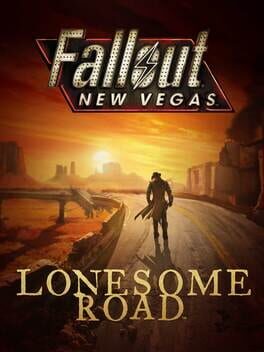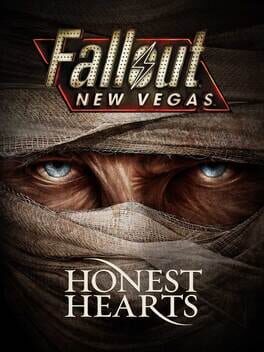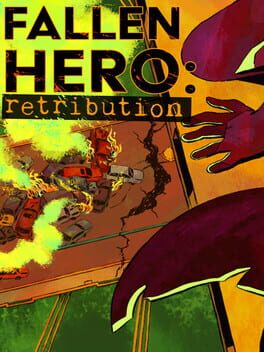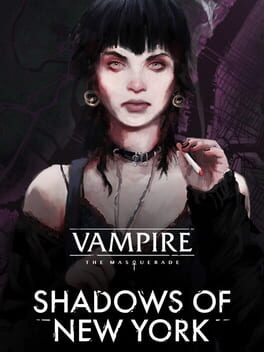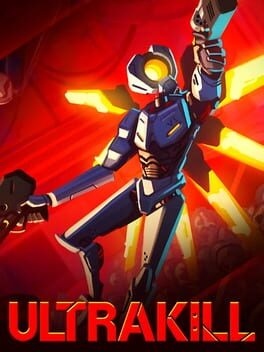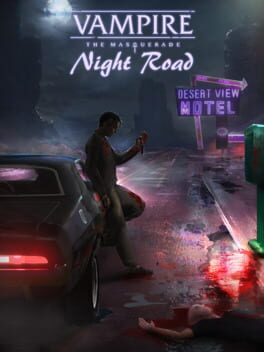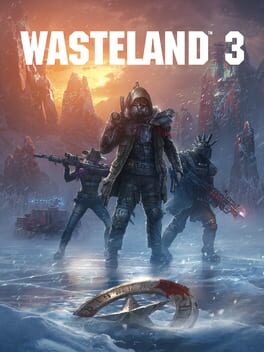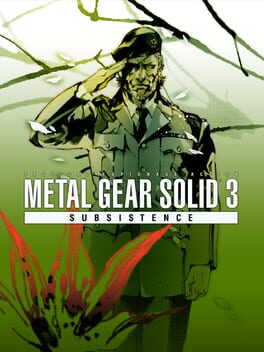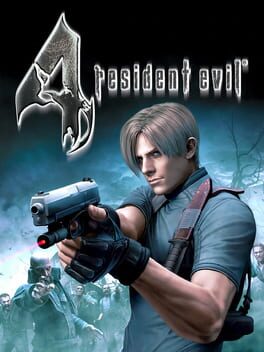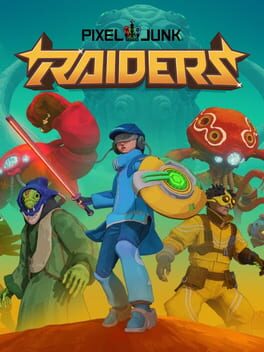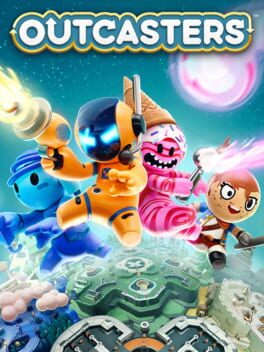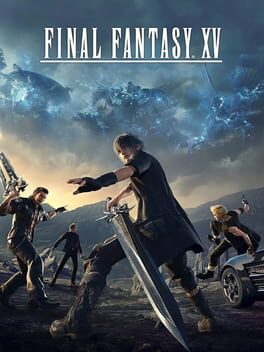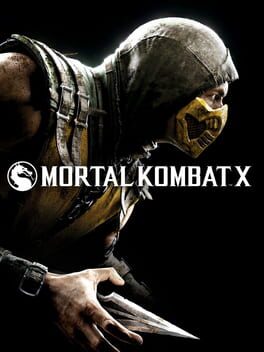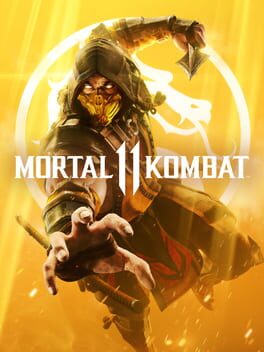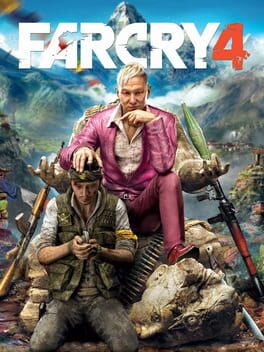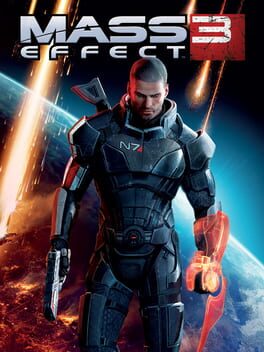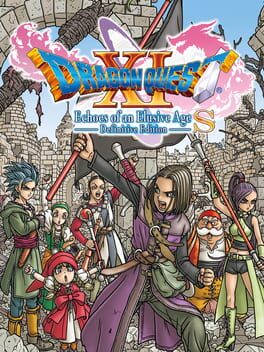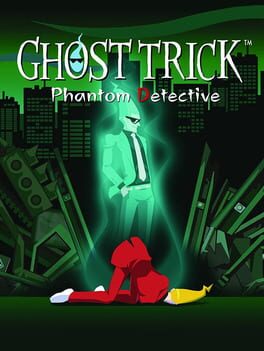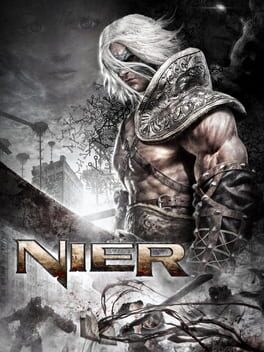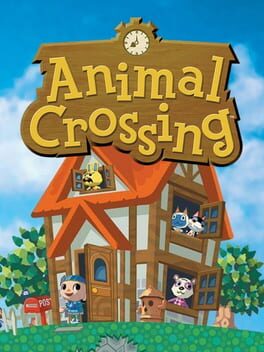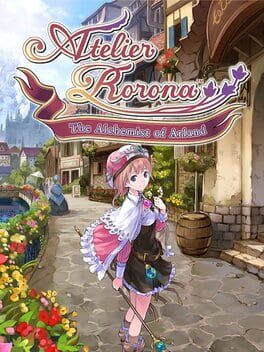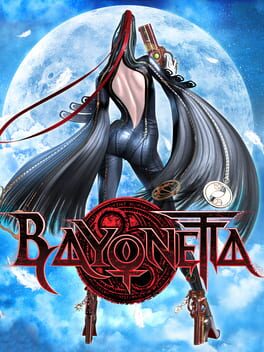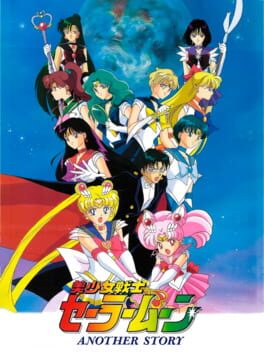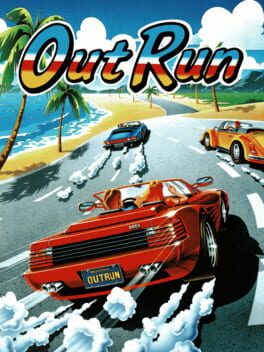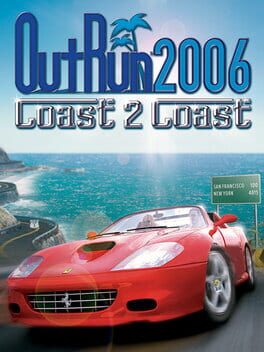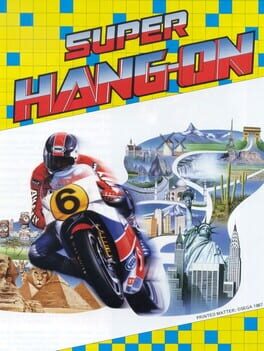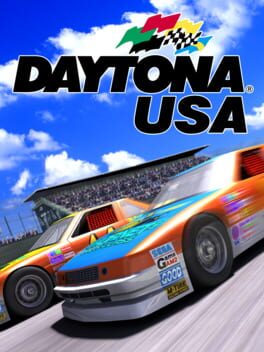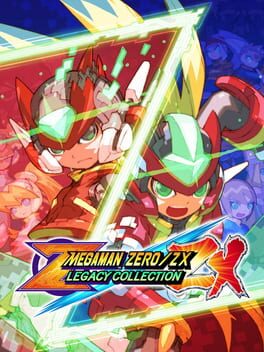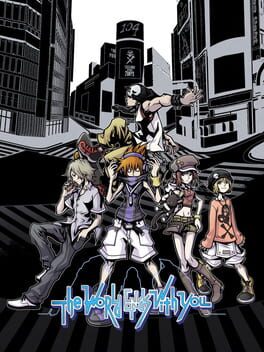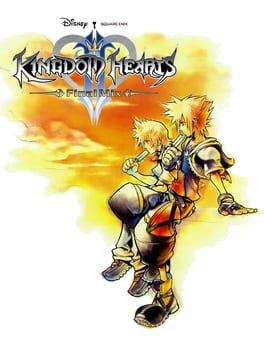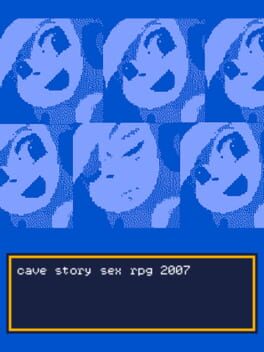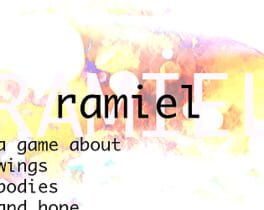Pedrox200
111 reviews liked by Pedrox200
Resident Evil 4
2023
Bad news, you've agreed to remake Resident Evil 4. You can't do a dead space where you just make it look prettier and make obvious improvements because RE4 isnt the sort of game to benefit from that and is about as close to a perfect action game as has ever been produced. And unlike your previous, considered remakes which even at their worst have value in portraying the same events differently, you cant change this one too much because that'd make less money. Also, corporate demands you remove the tank controls the original game is completely built around because modern gamers dont understand not being able to move whilst aiming.
It's a testament to the fine state of modern Capcom that this realisation of terrible ideas sort of works. Give this project to the capcom of 2016 and it'd almost certaintly be a remake on the level of Demons Souls 2020 where even if it looks """"prettier"""" it ultimately contributes basically nothing and just looks kinda off. Given what must have been ludicrously tight limitations considering the straight regugitation of RE4 with modern menuing and movement is probably the version that sells best - I think the job here is a good one.
Perhaps the boldest, though basically unspoken decision, is basically to drop the part where RE4 is this really clear, methodical and calculated action game. Whilst RE4make is still kinda decent in this regard, and it's encounters are often very fun, the focus is far for more on chaotic situations and reacting on the fly, in real time, to stuff. The decision alone to adapt RE2make's pretty stupid crit mechanics, along with enemies now focusing more on flanking (i get the feeling many way well spawn behind you but am not gonna state that definitively), variable stun damage, and the way animations interact and are rarely invulnerable - the end result i'd say is unquestionably a worse action game in terms of replayability and depth, but it does heighten how intense the encounters often feel. It almost feels crass to make this comparison considering it's lineage - but it feels a lot like the last of us.
And I think it's neat. Its kinda fascinating how significant the change in gameplay feels with nearly identical encounter design, weapons, general structure - to the original. I like how it rewards a different set of tactics and sort of fiddles with things like the balance of the original not by neccessarily buffing and nerfing things, but the game system changing neccessities. Grenades for instance are good in OG RE4 but here they are insanely good thanks to them simply allowing a way through masses of bodies.
The best changes, and the ones you can clearly tell the devs are most confident of, are those to the knife, probably the only real glaring fault for my money of the original RE4 combat system. Speeding up ground takedowns alone helps a lot, but I think limiting it as a resource and it's use defensively is very well done, and works particularly well with all the grabs and flanks the game throws at you. It's the one thing i see in this game as somethig which, with balance accordingly, i'd say "straight up mod that into RE4" were it that easy.
More questionable decisions come in the story and tonal changes. The middle ground adaptation of still keeping the story pretty fucking stupid (this is a good thing) whilst having the characters and general tone be much darker and less in line is not too great, though it could be worse. The character portayals being so good does sweeten the deal though. Ashley and Leon's growing friendship over the course of the game is legitimately lovely, the new Luis stuff is fantastic, the somehow made the Merchant better, and I like how Ada seems a bit more conflicted in this version. The antagonists definetly do take a blow in being less fun though. Whilst the original is clearly better overall, I will say there is fun to be had playing a serious version of Leon experiencing all this stupid shit.
Overall, I find it hard to judge. Part of the brilliance of particularly the RE2 remake is in how it accompanies the original work, provide an alternate take on events, and the entire "RE2 experience" is raised from having the two versions regardless of which one is "better." RE1 and 3 also benefit similarly (Even if the 3 remake is pretty weak). And with RE4 being such a conservative remake, the risk was that it would be almost pointless. Fun, yes - its Resident Evil 4 - but ultimately contributing very little. But I do think it is worthwhile. It certaintly isnt the best version of RE4 and it's more confused than any prior remake, but the changes here are interesting and make for an interesting take on the game, and particularly the character changes which can kinda feed back into enjoyment of the original.
Also, it really is a title that really makes you appreciate the original. Nothing can hammer home just how strong the encounter design, pacing and scenarios are in the original like them being nearly unchanged for the most part 18 years later, put in a different game system thats not as good, and it still is fun as hell. RE4 really is one of the best to ever fucking do it.
In a perfect world, the RE4 remake is a much bolder title. In my head I imagine something similar to RE1make with fixed camera angles and making greater story changes to give things to give more contrast - but that was never going to happen when that would not sell so well. RE4 is not the best remake and probably never could be burdened with the reality that it will sell 10 million copies if it just played it safe. With the constraints in mind, I think it's about as good as we were going to get.
And the silver lining is now Capcom has drunk the poisoned chalice, it's shackles are gone. The potential with Code Veronica and even RE5 for remakes which have the alternate take potential of RE2 is now ripe for picking. And im really up for that.
It's a testament to the fine state of modern Capcom that this realisation of terrible ideas sort of works. Give this project to the capcom of 2016 and it'd almost certaintly be a remake on the level of Demons Souls 2020 where even if it looks """"prettier"""" it ultimately contributes basically nothing and just looks kinda off. Given what must have been ludicrously tight limitations considering the straight regugitation of RE4 with modern menuing and movement is probably the version that sells best - I think the job here is a good one.
Perhaps the boldest, though basically unspoken decision, is basically to drop the part where RE4 is this really clear, methodical and calculated action game. Whilst RE4make is still kinda decent in this regard, and it's encounters are often very fun, the focus is far for more on chaotic situations and reacting on the fly, in real time, to stuff. The decision alone to adapt RE2make's pretty stupid crit mechanics, along with enemies now focusing more on flanking (i get the feeling many way well spawn behind you but am not gonna state that definitively), variable stun damage, and the way animations interact and are rarely invulnerable - the end result i'd say is unquestionably a worse action game in terms of replayability and depth, but it does heighten how intense the encounters often feel. It almost feels crass to make this comparison considering it's lineage - but it feels a lot like the last of us.
And I think it's neat. Its kinda fascinating how significant the change in gameplay feels with nearly identical encounter design, weapons, general structure - to the original. I like how it rewards a different set of tactics and sort of fiddles with things like the balance of the original not by neccessarily buffing and nerfing things, but the game system changing neccessities. Grenades for instance are good in OG RE4 but here they are insanely good thanks to them simply allowing a way through masses of bodies.
The best changes, and the ones you can clearly tell the devs are most confident of, are those to the knife, probably the only real glaring fault for my money of the original RE4 combat system. Speeding up ground takedowns alone helps a lot, but I think limiting it as a resource and it's use defensively is very well done, and works particularly well with all the grabs and flanks the game throws at you. It's the one thing i see in this game as somethig which, with balance accordingly, i'd say "straight up mod that into RE4" were it that easy.
More questionable decisions come in the story and tonal changes. The middle ground adaptation of still keeping the story pretty fucking stupid (this is a good thing) whilst having the characters and general tone be much darker and less in line is not too great, though it could be worse. The character portayals being so good does sweeten the deal though. Ashley and Leon's growing friendship over the course of the game is legitimately lovely, the new Luis stuff is fantastic, the somehow made the Merchant better, and I like how Ada seems a bit more conflicted in this version. The antagonists definetly do take a blow in being less fun though. Whilst the original is clearly better overall, I will say there is fun to be had playing a serious version of Leon experiencing all this stupid shit.
Overall, I find it hard to judge. Part of the brilliance of particularly the RE2 remake is in how it accompanies the original work, provide an alternate take on events, and the entire "RE2 experience" is raised from having the two versions regardless of which one is "better." RE1 and 3 also benefit similarly (Even if the 3 remake is pretty weak). And with RE4 being such a conservative remake, the risk was that it would be almost pointless. Fun, yes - its Resident Evil 4 - but ultimately contributing very little. But I do think it is worthwhile. It certaintly isnt the best version of RE4 and it's more confused than any prior remake, but the changes here are interesting and make for an interesting take on the game, and particularly the character changes which can kinda feed back into enjoyment of the original.
Also, it really is a title that really makes you appreciate the original. Nothing can hammer home just how strong the encounter design, pacing and scenarios are in the original like them being nearly unchanged for the most part 18 years later, put in a different game system thats not as good, and it still is fun as hell. RE4 really is one of the best to ever fucking do it.
In a perfect world, the RE4 remake is a much bolder title. In my head I imagine something similar to RE1make with fixed camera angles and making greater story changes to give things to give more contrast - but that was never going to happen when that would not sell so well. RE4 is not the best remake and probably never could be burdened with the reality that it will sell 10 million copies if it just played it safe. With the constraints in mind, I think it's about as good as we were going to get.
And the silver lining is now Capcom has drunk the poisoned chalice, it's shackles are gone. The potential with Code Veronica and even RE5 for remakes which have the alternate take potential of RE2 is now ripe for picking. And im really up for that.
New Vegas’s DLC serves as a capstone to overarching plotlines that have its threads in the base game, but even more than that, it serves to mine out the behind-the-scenes stories and missed encounters. Van Buren characters return, canned plot threads are unsealed, and Ulysses, originally a base-game companion, gets top billing. It’s hard to look at the DLC without considering its context. This is, almost certainly, the last West Coast Fallout game made by anybody who worked at Black Isle in any meaningful capacity. The add-on storyline is, then, something of a swan song - the series’ central themes are given a variety of tonal and thematic viewpoints, the serialized nature of it all allowing for extreme variety.
How badly are people trapped by their past? Are they in control of their future? How much can one great man truly accomplish, and will it last? These meat-and-potatoes Fallout-ass questions are stressed across genre, tone, visual style, and character perspective, to varying results. Lonesome Road represents the ultimate culmination of these themes and delivers it as the ultimate test to the player. It’s cool to see these gameplay systems be used for a grueling mega-dungeon lined with the most fearsome enemies in the game, and it takes the base game’s yellow-washed concrete and turns it into a thin orange haze amidst a skyline on fire. It’s paced better than any other of Avellone’s DLC, and it can be beaten in an evening (if you’re willing to stay up an hour past bedtime.)
It frustrates that it struggles to live up to its potential. After three expansions of hype, the much-vaunted confrontation between couriers is mostly conveyed through rambling phone calls. Ulysses rants about the obvious and doesn’t dig into the interesting, the Courier is given a backstory that they’re about as baffled by as the player, and incredibly bizarre questions about their past are raised and dismissed as quickly as they came (logistically, how would they even be a Legion spy at level zero, having lived their entire life west of the Hoover Dam and taking jobs for the NCR? If the Courier is a woman, they literally can’t have been in the Legion while still having the freedom to do... anything they do at all because of the patriarchal systems in place!!!)
Ulysses trembles in fear at the Big Empty’s scientists, claiming that somebody would need to be “a hundred Elijahs” to take them down - but the explicit mechanical and narrative point in Old World Blues is that they’re complete pushovers when they don’t hold all the cards - cards they did not hold at the time of Ulysses’ internment. He tells the Courier that they built a city they don’t remember, on roads they never walked. He systematically genocides a model society because they proved his ideology wrong by virtue of not collapsing like Ashton did, then high-roads the player because they delivered a package several years ago . He talks at length about the threat the Tunnelers pose to the Mojave, the unpreparedness and menace they bring, despite many, many slides in the base game ending contradicting this event’s occurrence and the DLC’s level design ensuring the Courier will have killed about eleventy bazillion singlehandedly. He castigates the player’s lack of beliefs even if they’re at the point of no return for the NCR. He tells the protagonist “remember... you could have turned away at any time... none of this had to happen...” in intonation that makes even a Spec Ops: The Line defender make dismissive jerk-off motions.
Constraining the protagonist’s backstory is not a bad thing. Knights of the Republic 2 and Planescape: Torment both do this extremely well; they indisputably did things that affected the world for better and for worse before the player took control, and it’s said player’s job to figure out how much responsibility they want to take and how much they can grow and change. This is baked into the core of both games, and the player is given a range of responses and reactions, through which they develop their character’s personality in meaningful ways. Lonesome Road is terrified of committing to this, and the Courier isn’t even concerned with taking responsibility inasmuch as they’re baffled at even having a backstory. There’s “the MC pathologically cannot take responsibility for their part in Peragus’ destruction in a healthy way and is incentivized to avoid taking any,” and there’s “in-universe, in-character, the MC asks what the fuck is going on and points out that this retcon breaks the lore, and the GMPC just kind of goes ‘nuh-uh’ and continues their screed anyways.”
This half-baked intrusion further suffers from its placement: there is a time to deny the player agency, and there is a time to establish constraints on their past and behavior, and that time is not in the victory lap dungeon crawl forty-four hours into a forty-five hour game. The Tunnelers obliterate the meaningfulness of literally any decisions the player makes in Lonesome Road, in the other DLC, and in the base game, because 80% of the Mojave will die overnight in the near future. Doing quests and character interactions with an assumed backstory becomes frustrating when the Courier suddenly grows a decade-plus of experience for just delivering mail (frustrating that the player has to spend their entire life doing this one thing to make the plot work, but Ulysses gets to do it as a side gig inbetween being a frumentarii and community-builder and still proclaims that he’s a full-fledged Capital C Courier) and has precious little space for anything not built around that single backstory and character concept.
Its finale has a bugged reputation check, a boring wave defense, and a genuinely great conversation that can be ignored with a 90 Speech check. The player is given a binary choice that’s never very hard to make at all given that they have to pick between NCR or Legion to beat the game, then are offered a get-out-of-jail-free sacrifice that textually loses absolutely nothing because all the relevant data was transmitted elsewhere and the Courier can just fill in the gaps later on if they want to. The ending slide has Chris Avellone finally remember that he forgot to make female characters feel weird and shitty, so the mic drop gets a gendered line that reads “War never changes. But women do!”
From the start, Fallout excelled at captivating the imagination and letting the player fill in the gaps, and going from a base game with eighteen months of development time to four DLCs that cost five bucks a pop means a lot is gonna get lost in the shuffle, shoved aside, or get served undercooked. Lonesome Road tries, and it threads together locations, characters, and concepts from every Fallout game up to that point - including Tactics and Van Buren - to create one final confrontation, begging the past to stay dead, the mistakes to be remembered, and the future to be written anew. Memories of the past were already falling apart or warped to fit new ends, and ghosts are put to rest or brought back incomplete and screaming. The end of the West Coast was never really going to be dignified, after all.
How badly are people trapped by their past? Are they in control of their future? How much can one great man truly accomplish, and will it last? These meat-and-potatoes Fallout-ass questions are stressed across genre, tone, visual style, and character perspective, to varying results. Lonesome Road represents the ultimate culmination of these themes and delivers it as the ultimate test to the player. It’s cool to see these gameplay systems be used for a grueling mega-dungeon lined with the most fearsome enemies in the game, and it takes the base game’s yellow-washed concrete and turns it into a thin orange haze amidst a skyline on fire. It’s paced better than any other of Avellone’s DLC, and it can be beaten in an evening (if you’re willing to stay up an hour past bedtime.)
It frustrates that it struggles to live up to its potential. After three expansions of hype, the much-vaunted confrontation between couriers is mostly conveyed through rambling phone calls. Ulysses rants about the obvious and doesn’t dig into the interesting, the Courier is given a backstory that they’re about as baffled by as the player, and incredibly bizarre questions about their past are raised and dismissed as quickly as they came (logistically, how would they even be a Legion spy at level zero, having lived their entire life west of the Hoover Dam and taking jobs for the NCR? If the Courier is a woman, they literally can’t have been in the Legion while still having the freedom to do... anything they do at all because of the patriarchal systems in place!!!)
Ulysses trembles in fear at the Big Empty’s scientists, claiming that somebody would need to be “a hundred Elijahs” to take them down - but the explicit mechanical and narrative point in Old World Blues is that they’re complete pushovers when they don’t hold all the cards - cards they did not hold at the time of Ulysses’ internment. He tells the Courier that they built a city they don’t remember, on roads they never walked. He systematically genocides a model society because they proved his ideology wrong by virtue of not collapsing like Ashton did, then high-roads the player because they delivered a package several years ago . He talks at length about the threat the Tunnelers pose to the Mojave, the unpreparedness and menace they bring, despite many, many slides in the base game ending contradicting this event’s occurrence and the DLC’s level design ensuring the Courier will have killed about eleventy bazillion singlehandedly. He castigates the player’s lack of beliefs even if they’re at the point of no return for the NCR. He tells the protagonist “remember... you could have turned away at any time... none of this had to happen...” in intonation that makes even a Spec Ops: The Line defender make dismissive jerk-off motions.
Constraining the protagonist’s backstory is not a bad thing. Knights of the Republic 2 and Planescape: Torment both do this extremely well; they indisputably did things that affected the world for better and for worse before the player took control, and it’s said player’s job to figure out how much responsibility they want to take and how much they can grow and change. This is baked into the core of both games, and the player is given a range of responses and reactions, through which they develop their character’s personality in meaningful ways. Lonesome Road is terrified of committing to this, and the Courier isn’t even concerned with taking responsibility inasmuch as they’re baffled at even having a backstory. There’s “the MC pathologically cannot take responsibility for their part in Peragus’ destruction in a healthy way and is incentivized to avoid taking any,” and there’s “in-universe, in-character, the MC asks what the fuck is going on and points out that this retcon breaks the lore, and the GMPC just kind of goes ‘nuh-uh’ and continues their screed anyways.”
This half-baked intrusion further suffers from its placement: there is a time to deny the player agency, and there is a time to establish constraints on their past and behavior, and that time is not in the victory lap dungeon crawl forty-four hours into a forty-five hour game. The Tunnelers obliterate the meaningfulness of literally any decisions the player makes in Lonesome Road, in the other DLC, and in the base game, because 80% of the Mojave will die overnight in the near future. Doing quests and character interactions with an assumed backstory becomes frustrating when the Courier suddenly grows a decade-plus of experience for just delivering mail (frustrating that the player has to spend their entire life doing this one thing to make the plot work, but Ulysses gets to do it as a side gig inbetween being a frumentarii and community-builder and still proclaims that he’s a full-fledged Capital C Courier) and has precious little space for anything not built around that single backstory and character concept.
Its finale has a bugged reputation check, a boring wave defense, and a genuinely great conversation that can be ignored with a 90 Speech check. The player is given a binary choice that’s never very hard to make at all given that they have to pick between NCR or Legion to beat the game, then are offered a get-out-of-jail-free sacrifice that textually loses absolutely nothing because all the relevant data was transmitted elsewhere and the Courier can just fill in the gaps later on if they want to. The ending slide has Chris Avellone finally remember that he forgot to make female characters feel weird and shitty, so the mic drop gets a gendered line that reads “War never changes. But women do!”
From the start, Fallout excelled at captivating the imagination and letting the player fill in the gaps, and going from a base game with eighteen months of development time to four DLCs that cost five bucks a pop means a lot is gonna get lost in the shuffle, shoved aside, or get served undercooked. Lonesome Road tries, and it threads together locations, characters, and concepts from every Fallout game up to that point - including Tactics and Van Buren - to create one final confrontation, begging the past to stay dead, the mistakes to be remembered, and the future to be written anew. Memories of the past were already falling apart or warped to fit new ends, and ghosts are put to rest or brought back incomplete and screaming. The end of the West Coast was never really going to be dignified, after all.
I really like the way this DLC handles faith in general. It's something messy, conflicting, deeply related to the people interpreting it, and yet it's still treated with sincerity and is shown to be a legitimately redemptive force just as much as it allows unearned clemency and hides developmental backslides. It works nicely with the themes of forgiveness and lost innocence.
It is annoying that it entirely secularizes the faith of the natives, though. I'd much have preferred a wider cosmology (especially because syncretization is such a major emphasis of their culture), but this DLC's scope of writing is pretty tight and I understand the mindset that led them to have everything tie back to the relationships between Canaanites and the people who are inexorably affected by their tendrils of imperialism. That's also why I always get a little annoyed at it being boiled down to "lol white savior" when the entire point is more about how it is impossible to take back that first contact - Joshua Graham is unambiguously, textually, the worst thing that ever happened to the Dead Legs or the Sorrows. The petty feud of a Hegelian LARPer causes real, appreciable harm that is delegated into comforting obscurity, and this largely-pointless conflict harms people well outside its scope. Daniel and Joshua can never actually find the peace they crave, only shades of it that still haunt their dreams. Every action they take here is a supplicative effort to spare their egos from fully reckoning with the ruin they singlehandedly brought these people.
The problem is that this DLC does not give remotely enough voices to the natives because of its tightdeadlines scope and that because it's a Choices Matter Roleplaying Game the PC has more sway than any individual voice, and this taints a good deal of its genuinely deep worldbuilding, character writing, and thematics. They have no real agency in the plot and the entire "innocence lost" angle mostly serves to infantilize. I don't think it's ill-intended, inasmuch as it's a victim of just being a DLC and thusly lacking the scope needed to tackle it three-dimensionally and being trapped in the structure of the base game, and I'll fully admit a good deal of this is cope when I know that Josh Sawyer has politics that are resoundly anti-imperialist, anti-capitalist, and anti-colonialist.
As much as it complicates its main narrative, the DLC's tight focus works to its benefit gameplay-wise. It does not overstay its welcome and is a pure, concentrated hit of Bethesda Dopamine that I sorely desired after Starfield's fast travel-heavy UX nightmare left me in the cold. There's always something cool to look at and something useful to find (if you're in hardcore mode, at least), and the Survivalist's logs is a very large part of why I love this genre. The .45 pistols are so fucking cool (and kinda so fucking busted) that they singlehandedly justify the DLC's existence.
At one point Daniel tells the player off: "Throughout our history, we have called many places Zion. This valley is full of God's beauty, but it's just a place. Zion is more than this."
I grew up in this part of the country. I used to believe what the Caananites believed. I can't ever go back there, even though those red rocks and blue skies are so comforting to me that these crude Gamebryo replications make me long so much that I ache. I can't ever commit to what guides these men, knowing what it's done to my family.
Even if he's allowed to stick to his morals, though, he can't help it. Even as he builds new lives for himself and those he loves, this place'll haunt his dreams for the rest of his life. Turning your back on Zion always leaves you emptier.
It is annoying that it entirely secularizes the faith of the natives, though. I'd much have preferred a wider cosmology (especially because syncretization is such a major emphasis of their culture), but this DLC's scope of writing is pretty tight and I understand the mindset that led them to have everything tie back to the relationships between Canaanites and the people who are inexorably affected by their tendrils of imperialism. That's also why I always get a little annoyed at it being boiled down to "lol white savior" when the entire point is more about how it is impossible to take back that first contact - Joshua Graham is unambiguously, textually, the worst thing that ever happened to the Dead Legs or the Sorrows. The petty feud of a Hegelian LARPer causes real, appreciable harm that is delegated into comforting obscurity, and this largely-pointless conflict harms people well outside its scope. Daniel and Joshua can never actually find the peace they crave, only shades of it that still haunt their dreams. Every action they take here is a supplicative effort to spare their egos from fully reckoning with the ruin they singlehandedly brought these people.
The problem is that this DLC does not give remotely enough voices to the natives because of its tight
As much as it complicates its main narrative, the DLC's tight focus works to its benefit gameplay-wise. It does not overstay its welcome and is a pure, concentrated hit of Bethesda Dopamine that I sorely desired after Starfield's fast travel-heavy UX nightmare left me in the cold. There's always something cool to look at and something useful to find (if you're in hardcore mode, at least), and the Survivalist's logs is a very large part of why I love this genre. The .45 pistols are so fucking cool (and kinda so fucking busted) that they singlehandedly justify the DLC's existence.
At one point Daniel tells the player off: "Throughout our history, we have called many places Zion. This valley is full of God's beauty, but it's just a place. Zion is more than this."
I grew up in this part of the country. I used to believe what the Caananites believed. I can't ever go back there, even though those red rocks and blue skies are so comforting to me that these crude Gamebryo replications make me long so much that I ache. I can't ever commit to what guides these men, knowing what it's done to my family.
Even if he's allowed to stick to his morals, though, he can't help it. Even as he builds new lives for himself and those he loves, this place'll haunt his dreams for the rest of his life. Turning your back on Zion always leaves you emptier.
Baldur's Gate 3
2020
Ultrakill
2020
Fallout: New Vegas
2010
This review contains spoilers
Some say he tore through the Mojave, a revenant hellbent on destruction. Others claimed she burned with righteous glory, a beacon of justice scorching the unjust, and others still claim they were just a kleptomaniac out to have a good time. Hell, I’ve heard they fell through the earth and woke up in D.C., that their mere presence would make you feel like your brain would stop processing, that they could carry a thousand pounds and run faster than the devil. End of the day, the trivia of the how and when barely matter as much as the “who”.
A decade ago, a batch of couriers set out with cargo bound to New Vegas. The whole lot of them carried worthless trinkets across the sands, a batch of diversions and a single Platinum Chip. Five couriers made it to New Vegas unscathed. Lady Luck must have had it out for the last poor bastard; the only package that mattered was signed off with two shots to the head and a shallow grave. That should’ve been the end of it, another nameless body lost to wasteland, but be it by fate, fury or spite, the dead man walked. Wasn't even two days later that the thief in the checkered suit was gunned down, 9mm justice ringing red hot. Within a week, President Kimball lost his head, the Followers of the Apocalypse were a smoking crater, the Brotherhood of Steel suffered a fatal error, and Caesar himself fell to the knife's edge. Crazy son of a gun even took the Strip by siege, running some police state ops under the table. Or at least, that's how I've heard it told.
When all is said and done, the devil's in the details. The Courier was just as much a sinner as a saint, but anyone could tell you that. Hell, I'd go as far as to say the moment-to-moment minutia doesn't matter; who cares that she traveled with a former 1st Recon sniper, or a whisky-chugging cowpoke? Will anyone remember the ghoul mechanic, the robo-dog, the Enclave reject, or the schizophrenic Nightkin?
No, even as the figurehead of The Strip, no one can really pin down the story in a way everyone can agree on. You'll hear a thousand stories, and the only two consistent factors are that some poor delivery boy got his brains blown out, and that when the dust settled, the Mohave was never quite the same. But listen to me rattle on… you know all of this. After all, that's exactly how you wanted it, right?
When you picked that platinum chip off of Benny, riddled with holes, you knew what you were doing, didn't you? How could you not; it wasn't the first time you shot the boy down. Last time, it was a Ripper to the gut, this time his own gun to the back of the head. Did everyone every figure out how Maria was in your hand and in his back pocket? When the mighty Courier crushed the Great Khans beneath their heel, did you so much as flinch, or was this just another quest in your wild wasteland? Even with cannibals licking their lips with you in their eyes, you smiled, like this was an old joke reminding you of better times.
A decade ago, you woke up in Doc Mitchell's practice, head like a hole with a big iron on your hip. Now, you're back in Goodsprings. Everyone acts like this is new, fresh, like you haven't done this a thousand times over. I know this story, you know it even better. Still, it's hard to stop yourself from doing the same old song and dance, isn't it? For as much as patrolling the Mojave can make you wish for a nuclear winter, you keep coming back. It's not just war; nothing about the desert ever changes. But that's just how you like it, isn't it, Courier?
Vegas never changes. You never change.
A decade ago, a batch of couriers set out with cargo bound to New Vegas. The whole lot of them carried worthless trinkets across the sands, a batch of diversions and a single Platinum Chip. Five couriers made it to New Vegas unscathed. Lady Luck must have had it out for the last poor bastard; the only package that mattered was signed off with two shots to the head and a shallow grave. That should’ve been the end of it, another nameless body lost to wasteland, but be it by fate, fury or spite, the dead man walked. Wasn't even two days later that the thief in the checkered suit was gunned down, 9mm justice ringing red hot. Within a week, President Kimball lost his head, the Followers of the Apocalypse were a smoking crater, the Brotherhood of Steel suffered a fatal error, and Caesar himself fell to the knife's edge. Crazy son of a gun even took the Strip by siege, running some police state ops under the table. Or at least, that's how I've heard it told.
When all is said and done, the devil's in the details. The Courier was just as much a sinner as a saint, but anyone could tell you that. Hell, I'd go as far as to say the moment-to-moment minutia doesn't matter; who cares that she traveled with a former 1st Recon sniper, or a whisky-chugging cowpoke? Will anyone remember the ghoul mechanic, the robo-dog, the Enclave reject, or the schizophrenic Nightkin?
No, even as the figurehead of The Strip, no one can really pin down the story in a way everyone can agree on. You'll hear a thousand stories, and the only two consistent factors are that some poor delivery boy got his brains blown out, and that when the dust settled, the Mohave was never quite the same. But listen to me rattle on… you know all of this. After all, that's exactly how you wanted it, right?
When you picked that platinum chip off of Benny, riddled with holes, you knew what you were doing, didn't you? How could you not; it wasn't the first time you shot the boy down. Last time, it was a Ripper to the gut, this time his own gun to the back of the head. Did everyone every figure out how Maria was in your hand and in his back pocket? When the mighty Courier crushed the Great Khans beneath their heel, did you so much as flinch, or was this just another quest in your wild wasteland? Even with cannibals licking their lips with you in their eyes, you smiled, like this was an old joke reminding you of better times.
A decade ago, you woke up in Doc Mitchell's practice, head like a hole with a big iron on your hip. Now, you're back in Goodsprings. Everyone acts like this is new, fresh, like you haven't done this a thousand times over. I know this story, you know it even better. Still, it's hard to stop yourself from doing the same old song and dance, isn't it? For as much as patrolling the Mojave can make you wish for a nuclear winter, you keep coming back. It's not just war; nothing about the desert ever changes. But that's just how you like it, isn't it, Courier?
Vegas never changes. You never change.
Playing Zork (1980) was one of my favorite things as a teen, so when I heard there was an Interactive Fiction game set in the WOD, I just had to get it. Now I’m excited to check out more stuff by Choice of Games, WOD licensed or not.
Firstly, I played this with the Secrets and Shadows DLC. Ravnos vampires, having to be constantly on the move as part of their clan curse, were simply made for this game. On that note, I’d say the DLC content blended smoothly with the base game, with the exception of the intro sequence, where the text seemingly contradicted itself (referencing a different embrace than the Ravnos one in some lines), although that sort of mistake is understandable when you make a text-based game with so many variations.
Speaking of which, I was thoroughly impressed with the amount of variables this game takes into account. It feels good to know the game will remember small details, chapters after the decision that generated them occurred. Another great thing is you aren’t forced to commit to one side straight of the bat, and are given a lot of freedom as to how to end the game. For example, I choose to help the Camarilla on the final mission, then go on my own path after that. The fact that it didn’t have to be one or the other was a breath of fresh air.
Plot-wise, I would also say this game is a breath of fresh air. Most VTM games have you starting out as a neonate and slowly be introduced to vampiric society. This one begins in media res (in quite an action-packed way, I might add), so most of the exposition is done through flashbacks, which really spares us the usual routine of vampire 101s, et cetera.
Thematically, it also works as a great introduction to 5th Edition VTM, focusing a lot on the Second Inquisition and its consequences for kindred society, as well as the Camarilla-Anarch conflict, with the Sabbat remaining in the background. Although I should add that both the Camarilla and Anarch sects are personified on the characters of Prince Lettow and Julian Sim, so if you don’t like one of them (as I very much disliked Julian), you’ll probably side with the other.
On the Second Inquisition, an aspect of the game I really enjoyed was how it conveyed the anxiety of using cellphones or computers to communicate with other Kindred. Often the places where you discarded compromised cellphones would end up razed to the ground a few nights later, while encounters with the Hunters were quick and explosive, as they should be. They are a lingering presence throughout the game, which adds a layer of tension that is incredibly engaging.
Driving is a big part of the experience, and you are given plenty of options as to what you can drive. Simply put: The game features a lot of car porn, which I’m sure appeals to a lot of folks (myself included). However, this also adds another layer of characterization, together with being able to pick your outfit at the beginning of the game, that helps to flesh out your character. Smalls details like “your park your Porsche(…)” or “the bullet pierced your Courier’s Outfit(…)” add a lot of personality to your vampire courier in the long run.
The same is true for NPCs, as just about every major character has a unique car that reflects their personality in some aspect, to a point where I was actually looking forward to seeing what each character drove after I met them.
Another feature of this game is the ability to romance certain NPCs, and while I will admit that there was only one actual “date” I was able to do with my romance option (I chose to romance my ghoul, Vani), by the end of the game I felt as though I had formed a significant bond with her. She accompanied me to every mission and I was able to ask her opinion on how to approach certain matters, which is purely optional but serves to develop your relationship with your ghoul. While I can’t know for sure, since I only played the game once, I would imagine other romance options might feel more or less developed.
Overall, I had a blast playing through VTM – Night Road and I feel that it’s a testament to the literary potential of IF games as well as the WOD setting in general, and would recommend it to VTM fans and non-fans alike.
Firstly, I played this with the Secrets and Shadows DLC. Ravnos vampires, having to be constantly on the move as part of their clan curse, were simply made for this game. On that note, I’d say the DLC content blended smoothly with the base game, with the exception of the intro sequence, where the text seemingly contradicted itself (referencing a different embrace than the Ravnos one in some lines), although that sort of mistake is understandable when you make a text-based game with so many variations.
Speaking of which, I was thoroughly impressed with the amount of variables this game takes into account. It feels good to know the game will remember small details, chapters after the decision that generated them occurred. Another great thing is you aren’t forced to commit to one side straight of the bat, and are given a lot of freedom as to how to end the game. For example, I choose to help the Camarilla on the final mission, then go on my own path after that. The fact that it didn’t have to be one or the other was a breath of fresh air.
Plot-wise, I would also say this game is a breath of fresh air. Most VTM games have you starting out as a neonate and slowly be introduced to vampiric society. This one begins in media res (in quite an action-packed way, I might add), so most of the exposition is done through flashbacks, which really spares us the usual routine of vampire 101s, et cetera.
Thematically, it also works as a great introduction to 5th Edition VTM, focusing a lot on the Second Inquisition and its consequences for kindred society, as well as the Camarilla-Anarch conflict, with the Sabbat remaining in the background. Although I should add that both the Camarilla and Anarch sects are personified on the characters of Prince Lettow and Julian Sim, so if you don’t like one of them (as I very much disliked Julian), you’ll probably side with the other.
On the Second Inquisition, an aspect of the game I really enjoyed was how it conveyed the anxiety of using cellphones or computers to communicate with other Kindred. Often the places where you discarded compromised cellphones would end up razed to the ground a few nights later, while encounters with the Hunters were quick and explosive, as they should be. They are a lingering presence throughout the game, which adds a layer of tension that is incredibly engaging.
Driving is a big part of the experience, and you are given plenty of options as to what you can drive. Simply put: The game features a lot of car porn, which I’m sure appeals to a lot of folks (myself included). However, this also adds another layer of characterization, together with being able to pick your outfit at the beginning of the game, that helps to flesh out your character. Smalls details like “your park your Porsche(…)” or “the bullet pierced your Courier’s Outfit(…)” add a lot of personality to your vampire courier in the long run.
The same is true for NPCs, as just about every major character has a unique car that reflects their personality in some aspect, to a point where I was actually looking forward to seeing what each character drove after I met them.
Another feature of this game is the ability to romance certain NPCs, and while I will admit that there was only one actual “date” I was able to do with my romance option (I chose to romance my ghoul, Vani), by the end of the game I felt as though I had formed a significant bond with her. She accompanied me to every mission and I was able to ask her opinion on how to approach certain matters, which is purely optional but serves to develop your relationship with your ghoul. While I can’t know for sure, since I only played the game once, I would imagine other romance options might feel more or less developed.
Overall, I had a blast playing through VTM – Night Road and I feel that it’s a testament to the literary potential of IF games as well as the WOD setting in general, and would recommend it to VTM fans and non-fans alike.
Wasteland 3
2020
48 lists liked by Pedrox200
by slimedotcom |
61 Games
by Cold_Comfort |
28 Games
by slimedotcom |
35 Games
by Josh_The_Fourth |
5 Games
by ConeCvltist |
40 Games

